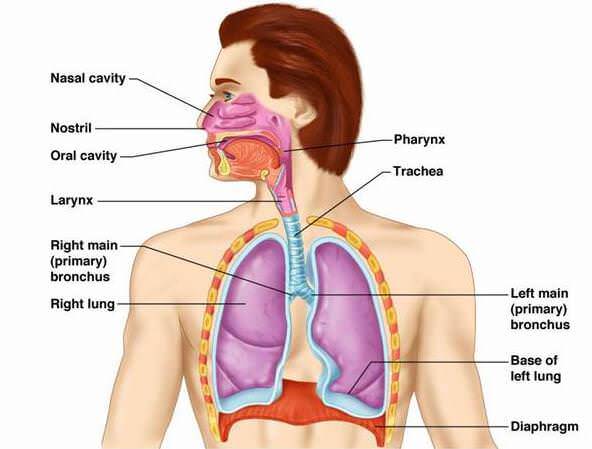Food alone cannot provide energy for living organisms to survive. The energy has to be released from the food. it is done by combining food with oxygen. During this process carbon dioxide is released as a by-product. This process is called respiration.
Respiration may be defined as an oxidative process which involves the breaking up of food substances in the cells to form carbon dioxide, water and energy.The process of respiration can be represented by a chemical equation as given below:
Food + oxygen → carbon dioxide + water + energy
Breathing and respiration

Breathing may be defined as the process of taking in oxygen from the environment and giving out carbon dioxide So, breathing is just a physical process in which no energy is released. On the other hand, the process of respiration is more complex. It involves the inhalation of air, absorption and transport of oxygen to various cells of the body, oxidation of food in the cells and elimination of carbon dioxide from the body. Thus, respiration is a biochemical process. During the process of respiration energy is released which is used for performing various biological activities and maintenance of life.
What happens to the rate of breathing during vigorous exercise and why?
In a healthy person the normal rate of breathing is 18 times per minute. But during vigorous physical exercise the rate of breathing increases to 20-25 times per minute. This is due to the reason that during vigorous physical exercise our body needs more energy. This requirement of more energy can be met only by supplying more oxygen gas. So, in order to meet the requirement of high energy during vigorous physical exercise, breathing becomes fast so that more oxygen gas can be supplied to body cells.
Differences between Breathing and Respiration
| S No. | Breathing | Respiration |
| 1. | Breathing may be defined as the process of taking in oxygen from the environment and giving out carbon dioxide | Respiration may be defined as an oxidative process which involves the burning up of food substances in the cells to form carbon dioxide, water and energy |
| 2. | It is a physical process. | It is a biochemical process. |
| 3. | No energy is released during breathing. | Energy is released during respiration in the form of ATP. |
| 4. | No enzymes are involved in breathing. | A large number of enzymes are involved in respiration. |
| 5. | The process of breathing is absent in some organisms. | Respiration takes place in all organisms. |
Test Your Understanding and Answer These Questions:
- Define respiration.
- What is breathing?
- How is respiration different from breathing?
